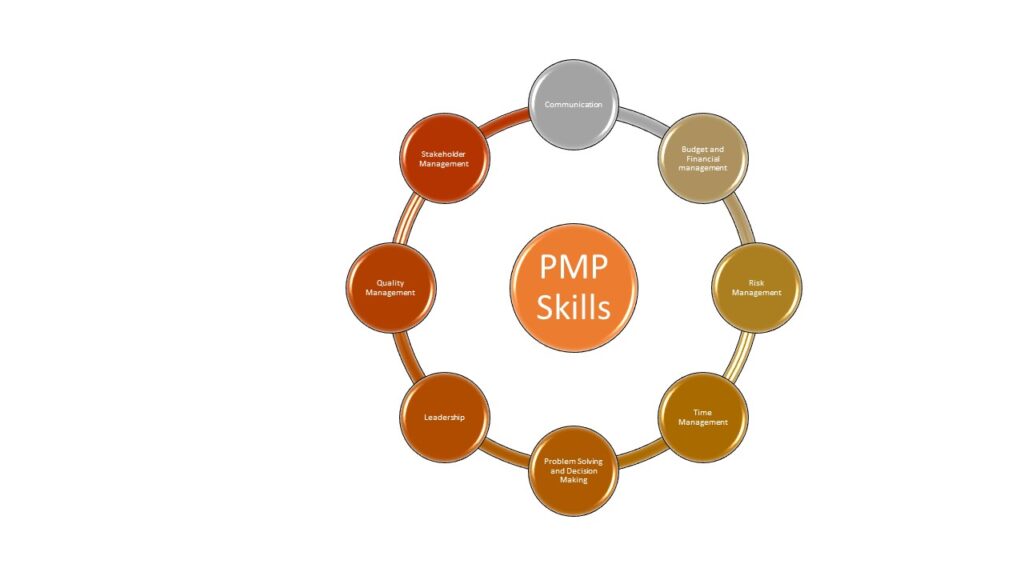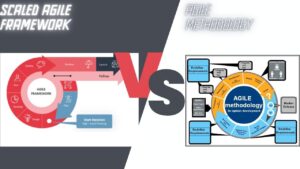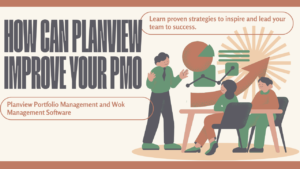Project management is a complex and dynamic field that requires a diverse skill set to ensure successful project completion. As a PMP (Project Management Professional) professional, your role is crucial in completing projects within schedule and budget while mitigating risks and leveraging opportunities. In this blog post, we will explore the ten essential project management skills that every PMP professional should possess. These skills encompass various aspects of project management, from effective communication and leadership to problem-solving and stakeholder management. Let’s delve into each skill and understand their significance in driving project success.
Table of Contents

Communication Skills: Project Management

Effective communication lies at the core of project management. PMP professionals must be adept at conveying information, listening actively, and fostering collaboration among team members and stakeholders. Clear and concise communication ensures that project goals, expectations, and requirements are well understood by all parties involved. Furthermore, it helps in resolving conflicts, managing expectations, and providing timely progress reports. By mastering communication skills, PMP professionals can create a positive project environment and establish strong relationships with stakeholders.
Leadership Skills:

Leadership is a vital skill for PMP professionals to inspire and guide project teams towards success. Effective leaders exhibit qualities such as vision, motivation, and the ability to empower their team members. They provide guidance, set clear objectives, and encourage collaboration and innovation. Strong leadership fosters a sense of ownership and accountability among team members, leading to improved project outcomes. PMP professionals with exceptional leadership skills can motivate their teams to overcome challenges and achieve project milestones.
Problem-solving and Decision-making Skills:

Project management involves navigating through numerous challenges and making critical decisions along the way. PMP professionals should possess strong problem-solving and decision-making skills to tackle unexpected obstacles and identify optimal solutions. They must be analytical, creative, and capable of evaluating risks and opportunities. By employing structured problem-solving techniques and employing sound judgment, PMP professionals can mitigate risks, adapt to change, and ensure project success.
Time Management Skills:

Time management is essential in project management, where meeting deadlines is crucial. PMP professionals must effectively plan, schedule, and prioritize tasks to ensure timely project completion. They should be skilled at estimating task durations, identifying critical paths, and managing dependencies. By optimizing time management, PMP professionals can prevent schedule delays, maintain project momentum, and deliver results within the specified timeframe.
Risk Management Skills:

In any project, risks are inherent and can have a significant impact on project outcomes. PMP professionals need to be proficient in risk management, including identifying, analyzing, and mitigating potential risks. They must assess risk probability and impact, develop contingency plans, and proactively monitor and control risks throughout the project lifecycle. By effectively managing risks, PMP professionals can minimize the chances of project failures and enhance the overall project success rate.
Budgeting and Financial Management Skills:

Managing project budgets and controlling costs is crucial for PMP professionals. They need to develop comprehensive project budgets, estimate costs accurately, and monitor expenses throughout the project’s duration. By employing budgeting and financial management skills, PMP professionals can ensure optimal resource allocation, control costs, and maximize project value within the specified budget constraints.
Quality Management Skills:
Delivering high-quality project outcomes is paramount for PMP professionals. They should possess strong quality management skills to define project quality standards, develop quality control measures, and conduct quality assurance activities. PMP professionals must establish robust quality control processes, perform inspections and audits, and implement continuous improvement strategies. By prioritizing quality management, PMP professionals can meet stakeholder expectations and enhance project outcomes.
Stakeholder Management Skills:

Projects involve various stakeholders with different interests, expectations, and levels of influence. PMP professionals must excel in stakeholder management to understand their needs, engage them effectively, and ensure their satisfaction. This skill requires active listening, negotiation, and conflict resolution abilities. By building strong relationships, managing stakeholder expectations, and addressing concerns promptly, PMP professionals can foster stakeholder buy-in and maintain positive project dynamics.
Summary and Conclusion:
As a PMP professional, mastering these ten essential project management skills is crucial for successful project delivery. Effective communication, leadership, problem-solving, time management, risk management, budgeting, quality management, and stakeholder management skills empower PMP professionals to navigate complex projects with confidence. By continuously honing these skills, PMP professionals can consistently meet project objectives, exceed stakeholder expectations, and drive organizational success. Remember, becoming a well-rounded project management professional requires a commitment to continuous learning and professional development in these key areas.



